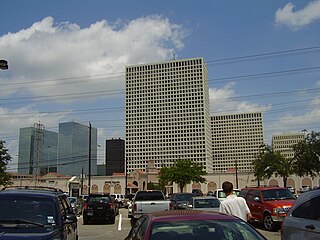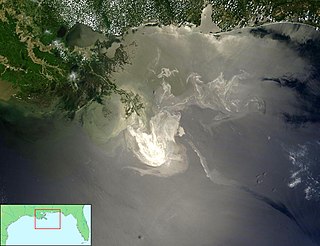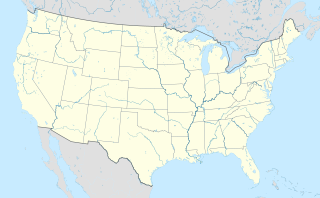Related Research Articles

Transocean Ltd. is the world's largest offshore drilling contractor based on revenue and is based in Vernier, Switzerland. The company has offices in 20 countries, including Canada, the United States, Norway, Scotland, India, Brazil, Singapore, Indonesia, and Malaysia.

Deepwater Horizon was an ultra-deepwater, dynamically positioned, semi-submersible offshore drilling rig owned by Transocean. Built in 2001 in South Korea by Hyundai Heavy Industries, the rig was commissioned by R&B Falcon, registered in Majuro, and leased to BP from 2001 until September 2013. In September 2009, the rig drilled the deepest oil well in history at a vertical depth of 35,050 ft (10,683 m) and measured depth of 35,055 ft (10,685 m) in the Tiber Oil Field at Keathley Canyon block 102, approximately 250 miles (400 km) southeast of Houston, in 4,132 feet (1,259 m) of water.
Jed Horne is a Pulitzer Prize-winning journalist who was for many years city editor of The Times-Picayune, the New Orleans daily newspaper. He is the author of two books: Breach of Faith: Hurricane Katrina and the Near Death of a Great American City, which chronicled Hurricane Katrina and the city's gradual recovery, and Desire Street: A True Story of Death and Deliverance in New Orleans, the story of a Louisiana death row case. Horne was named a senior consultant to President Obama's bipartisan National Commission on the BP Deepwater Horizon Oil Spill and Offshore Drilling following the 2010 blowout of BP's Deepwater Horizon rig in the Gulf of Mexico. In 2013 he made a documentary about the Fukushima tsunami and reactor disaster, that was broadcast on Japan's public television network, NHK. He has been interviewed by numerous radio and television personalities, including Terry Gross, Amy Goodman, Charlie Rose, and Tavis Smiley. With initial funding from George Soros, he helped, along with Ariella Cohen and Karen Gadbois, to found The Lens, an investigative website focused on New Orleans governance.

The U.S. offshore drilling debate is an ongoing debate in the United States on whether or not, the extent to which, in which areas, and under what conditions, further offshore drilling should be allowed in U.S.-administered waters.

The Tiber Oil Field is a deepwater offshore oil field located in the Keathley Canyon block 102 of the United States sector of the Gulf of Mexico. The deepwater field was discovered in September 2009 and it is operated by BP. Described as a "giant" find, it is estimated to contain 4 to 6 billion barrels of oil in place. Although BP states it is too early to be sure of the size – a "huge" field is usually considered to contain 250 million barrels. It required the drilling of a 10,685 m (35,056 ft) deep well under 1,260 m (4,130 ft) of water, making it one of the deepest wells ever drilled at the time of discovery.

The Deepwater Horizon oil spill was an industrial disaster that began on 20 April 2010, in the Gulf of Mexico on the BP-operated Macondo Prospect, considered to be the largest marine oil spill in the history of the petroleum industry and estimated to be 8 to 31 percent larger in volume than the previous largest, the Ixtoc I oil spill, also in the Gulf of Mexico. The U.S. federal government estimated the total discharge at 4.9 million barrels. After several failed efforts to contain the flow, the well was declared sealed on 19 September 2010. Reports in early 2012 indicated that the well site was still leaking. The Deepwater Horizon oil spill is regarded as one of the largest environmental disasters in American history.

The Macondo Prospect is an oil and gas prospect in the United States Exclusive Economic Zone of the Gulf of Mexico, off the coast of Louisiana. The prospect was the site of the Deepwater Horizon drilling rig explosion in April 2010 that led to a major oil spill in the region.

The Deepwater Horizon drilling rig explosion was the April 20, 2010, explosion and subsequent fire on the Deepwater Horizon semi-submersible mobile offshore drilling unit, which was owned and operated by Transocean and drilling for BP in the Macondo Prospect oil field about 40 miles (64 km) southeast off the Louisiana coast. The explosion and subsequent fire resulted in the sinking of the Deepwater Horizon and the deaths of 11 workers; 17 others were injured. The same blowout that caused the explosion also caused an oil well fire and a massive offshore oil spill in the Gulf of Mexico, considered the largest accidental marine oil spill in the world, and the largest environmental disaster in U.S. history.
The following is a timeline of the Deepwater Horizon oil spill. It was a massive oil spill in the Gulf of Mexico, the largest offshore spill in U.S. history. It was a result of the well blowout that began with the Deepwater Horizon drilling rig explosion on April 20, 2010.
This article covers the effect of the Deepwater Horizon disaster and the resulting oil spill on global and national economies and the energy industry.
Hornbeck Offshore Services v. Salazar is an ongoing case in United States federal court. In the wake of the Deepwater Horizon explosion and the subsequent oil spill, the U.S. Department of the Interior issued a six-month moratorium on exploratory drilling in deep water. Plaintiffs filed suit challenging the moratorium.
On May 30, 2010 a 6-month moratorium on all deepwater offshore drilling on the Outer Continental Shelf was declared by U.S. Secretary of the Interior Ken Salazar. The limitation was in response to the Deepwater Horizon oil spill which occurred in the Gulf of Mexico.
Following is a timeline of the Deepwater Horizon oil spill for June 2010.
Following is a timeline of the Deepwater Horizon oil spill for July 2010.
Following is a Timeline of the Deepwater Horizon oil spill for May 2010.
Reactions to the Deepwater Horizon oil spill from various officials and interested parties ranged from blame and outrage at the damage caused by the spill, to calls for greater accountability on the part of the U.S. government and BP, including new legislation dealing with preventative security and clean-up improvements.
Donald F. Boesch is a professor of marine science and, from 1990 to 2017, president of the University of Maryland Center for Environmental Science. From 2006-2017, he concurrently served as Vice Chancellor for Environmental Sustainability for the University System of Maryland. In 2010, he was appointed by President Barack Obama as a member of the National Commission on the BP Deepwater Horizon Oil Spill and Offshore Drilling to investigate the root causes of the blowout at the Macondo Prospect in the Gulf of Mexico.
The Back to Work Coalition is a group of twelve offshore oil and gas industry stakeholders and trade associations that have banded together to oppose the federal and regulatory policies placed on the industry following the Deepwater Horizon oil well explosion of April 2010. After the explosion, the Obama administration imposed a federal moratorium on deepwater drilling that lasted through mid-October 2010. The Back to Work Coalition was created in December 2010 to combat what the members believe is a "de facto" moratorium caused by the federal government's hesitance in issuing drilling permits on the gulf's Outer Continental Shelf (OCS). The coalition was founded by Louisiana Department of Natural Resources (DNR) Secretary Scott Angelle. The coalition is facilitated by the Gulf Economic Survival Team (GEST), a nonprofit organization created to restore Louisiana's economy following the moratorium.

Arctic Challenger is a barge which has been converted by Superior Energy Services for use in the Arctic drilling operations of Shell Oil Company. This barge is designed to function as a "novel engineering solution" which they refer to as an Arctic Containment System to respond should a blowout event occur at drilling sites in the Beaufort or Chukchi Seas. According to testimony provided to Senator Mark Begich on 11 October 2012, Coast Guard Rear Admiral Thomas Ostebo said the certification for the Shell spill barge Arctic Challenger to operate in Alaska was given on the 10th of October at the Bellingham, Washington shipyard where it was constructed. Ostebo is commander of the Coast Guard’s 17th district, which covers Alaska.
The Deepwater Horizon investigation included several investigations and commissions, among others reports by National Incident Commander Thad Allen, United States Coast Guard, National Commission on the BP Deepwater Horizon Oil Spill and Offshore Drilling, Bureau of Ocean Energy Management, Regulation and Enforcement, National Academy of Engineering, National Research Council, Government Accountability Office, National Oil Spill Commission, and Chemical Safety and Hazard Investigation Board.
References
- ↑ "President Obama Announces Members of the BP Deepwater Horizon Oil Spill and Offshore Drilling Commission". whitehouse.gov (Press release). 14 June 2010. Archived from the original on 27 January 2017. Retrieved 14 July 2010– via National Archives.
- ↑ Rodriguez, Maya (12 July 2010). "National oil spill commission begins two-day hearing In New Orleans". WWL TV. Archived from the original on 16 July 2010. Retrieved 14 July 2010.
- ↑ "First Public Meeting Agenda" (Press release). National Commission on the BP Deepwater Horizon Oil Spill and Offshore Drilling. Archived from the original on 15 July 2010. Retrieved 14 July 2010.
- ↑ Steven Mufson and David A. Fahrenthold (7 October 2010). "Administration's response to gulf spill ill-managed, report says". The Washington Post. Retrieved 7 October 2010.
- ↑ Steven Mufson (7 October 2010). "Panel catalogs many White House missteps on gulf oil spill". The Boston Globe. Retrieved 7 October 2010.
- ↑ "Report to the President". Retrieved 2011-01-11.
- ↑ Broder, John M., "Oil Spill Panel Calls for New Rules and Spending", The New York Times, January 11, 2011. Retrieved 2011-01-11.
